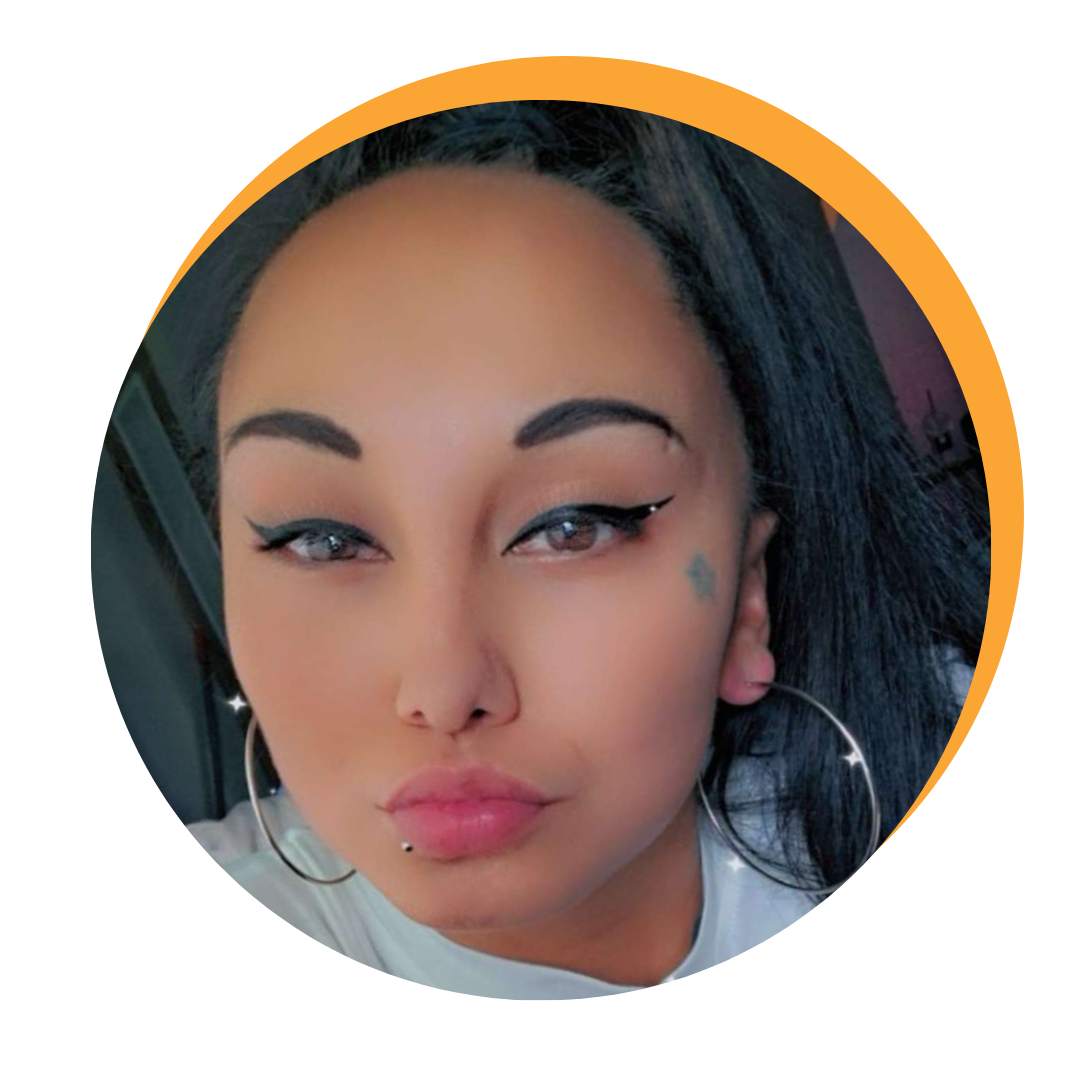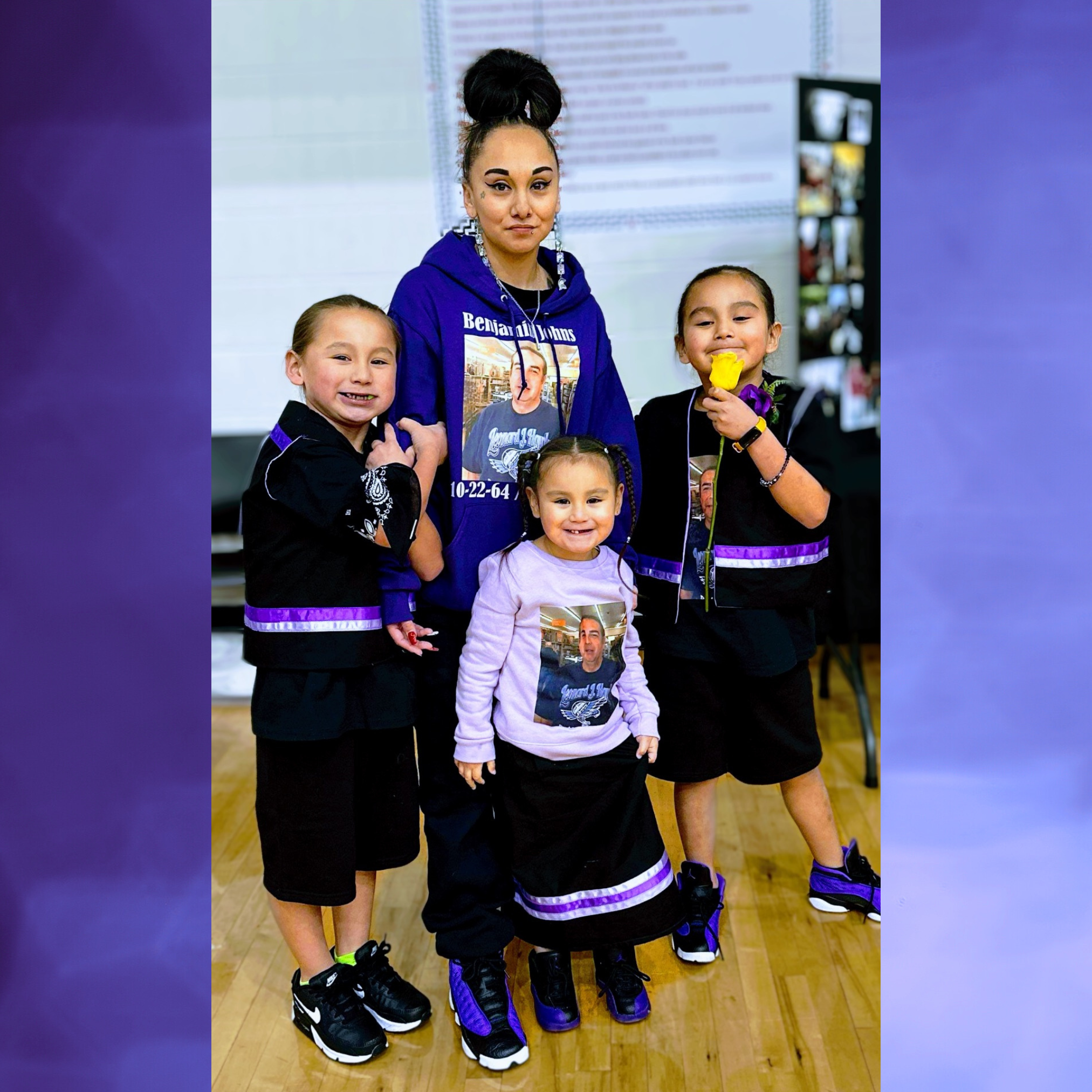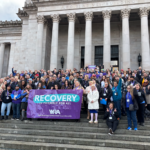
Our clients move mountains to make changes that work for them, achieve goals on their terms, and stay in treatment. We’ve walked alongside our participants as they crest peaks and navigate valleys for over 50 years.
Join us at this year’s Roots of Recovery gala to support ETS patients and staff through every switchback on the journey.
Nikki is thirty-two years old and grew up on the Nisqually Reservation near Olympia, Washington. “Substance use has been around me my whole life,” she told us. “A good majority of people on this reservation are in the same situation. It’s just everywhere around us.”
Despite the prevalence of drugs around her as a child, Nikki didn’t begin using until she was a teen. When she was in middle school, she lost three of her older brothers to drugs or alcohol. Shortly after, when she was fifteen, her mother passed away.
“Even then, I still didn’t start using right away. I just stopped going to school and started hanging out with different people. Then, eventually I started using.” At first, Nikki took pain pills in a social setting: “Maybe two, three times a month, and that was it.”
As she got older, she began dating the man who would be her oldest son’s father. He had been using for most of his life, beginning at a very young age. “That’s all he really knew, and that relationship was abusive. I don’t know why, but when I finally left that relationship, I started using more.”
Nikki then began dating her significant other, Malachi. They’ve been together for eleven years. They used together throughout their early relationship, until Nikki discovered she was expecting her second child. She entered inpatient treatment and abstained from use throughout her pregnancy. “I stayed clean that whole pregnancy. And when I had my third son, years later, I was still clean. That was about four and a half years without using.”

Her partner continued using and was incarcerated several years later. “Once he went to prison, I really couldn’t work because I didn’t have daycare. I ended up having to stop working to take care of the kids. And I started using again. It progressed relatively fast. Within a month, I was full blown using.”
As years went by, Nikki and Malachi each found themselves in and out of detox centers. While in detox, Nikki discovered she was pregnant with her daughter—a surprise to her since she hadn’t planned to have any more children. Once she returned from the detox center, she learned her sister Kaylee was in the hospital from an infection brought on by her drug use. “We went out to see her, and for some reason, we stopped and got pills on the way. We didn’t do them, but we got them.”
Visiting her sister in the hospital was traumatic for Nikki. They were close throughout childhood but had a falling out over the last few years. “Visiting her was probably the hardest thing I ever had to do in my life. Even after losing brothers and my mom and aunties and uncles and friends, it was just the hardest thing ever.”
After exiting the hospital room, Nikki remembers her family’s tense response. “It was like all eyes were on me and Malachi. Everybody was like, ‘Don’t go use. Don’t go get high. Go home, be good. Kaylee wouldn’t want you to go use.’” Despite her family’s warnings, Nikki and Malachi went home to take the pills they’d bought on the way over.
Nikki’s sister passed away, and her use continued. It was an incredibly difficult relapse for Nikki, largely because it was the first time she’d been using while pregnant. “I judged a lot of people who used while they were pregnant. I was like, ‘I could never be one of those people.’ But this was when all the pills were turning to fentanyl, and it was just so much harder to get off of.”
During her pregnancy, Nikki tried to stop using. “I tried to go to detox and treatment, I think six or seven times while I was pregnant with my daughter. I completed detox maybe twice, and I stayed clean for two to three weeks at a time. I don’t know what it was, but this time it was just different.”
“When you’re serious and you want to change your way of living, methadone really, really helps.”
When her daughter was born, her mother-in-law became the temporary legal guardian of her children. Nikki and Malachi were still able to see their children regularly. Nikki’s mother-in-law was in long-term recovery and experienced a recurrence of use after the loss of her sister. At that point, Nikki’s children were removed from her mother-in-law’s care and placed with relatives on the reservation.
“When they finally got taken from my mother-in-law, that was it for me,” she told us. “I was like, ‘Nope, I’m done.’ I went to the methadone clinic before I fully stopped using. I got my dose up to where I felt comfortable, and I’ve been clean ever since.”
In the early stages of her recovery, Nikki visited ETS’ South Sound clinic in Olympia. “Evergreen Treatment Services has just been amazing. A lot of places that I’d gone to before were hit or miss.” Nikki remembers working with counselors who didn’t have lived experience with drugs—either themselves or family members, friends, and neighbors—and she found it hard to relate to these people, however well-meaning they were. They just didn’t understand where she was coming from.
Today, Nikki vouches for medication for opioid use disorder. “When you’re serious and you want to change your way of living, methadone really, really helps. I’ve recommended seven or eight people to the methadone program at Evergreen Treatment Services.”
Starting treatment is no small feat, one that can come with many twists and turns. But recovery is not a destination, nor does it begin or end with treatment. There’s much more that ETS participants work toward that often goes unnoticed. We asked Nikki what this year’s Roots of Recovery theme, Moving Mountains, means to her.
“Moving mountains is relatable to my recovery in so many ways,” she shared. “When I got clean, not only did I have a list of court ordered stuff to do just to start seeing my kids and work towards getting them back. I had to start paying bills. I had to get my license back; I ended up having to get a whole new car. I had to fix all the things in my life.”
“… that little bit of support helped me such a long way.”
Family remains a big part of Nikki’s life as she navigates these responsibilities and works to regain custody of her children. “That little bit of support from my family every time I tried to stop using, that little bit of support helped me such a long way.”
Nikki sees her children regularly and is excited to have them back in her home. “I’m 100% happier than I was before, but some days are harder than others. There’s a lot that you have to do behind the scenes that not everybody sees.”




